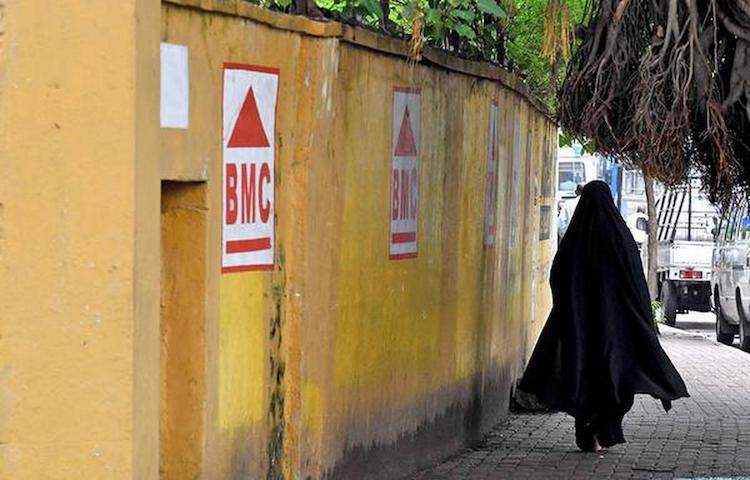By Sugeeswara Senadhira
COLOMBO (IDN) — Though Muslim women have been considered a group that shunned politics for generations, in recent months, there has been a remarkable change in their awareness of political rights. Reflecting this new awareness, a group of Muslim women displayed their desire to take up the cause of Sri Lankan women for their rightful place in politics.
Recently, a group of Muslim women representatives urged the Government to increase the representation of women from 25 per cent to 50 per cent in future elections for Parliament, provincial councils, and local government institutions. They feel the recent increase of women’s quota in local government institutions to 25 per cent was inadequate, as women comprise nearly 52 per cent of the population of Sri Lanka.
They pointed out that the interest in politics has grown among women, and there is a strong desire among women who are active in sociopolitical work to participate in the upcoming elections. They added that women involved in local government politics will have the opportunity to solve many problems of the people at the grassroots level. Female Muslim representatives can also have more opportunities to identify the sufferings of the Muslim people and provide solutions to their problems.
This group of Muslim women representing the local government institutions of many districts of the country, including Jaffna, Trincomalee, Ampara, Vavuniya, Puttalam, Gampaha, and Colombo, took their stand for women of every community and not only Muslim women. They believe that the representation of women in the political arena should not differ according to religion and race, and women and children living at home are the most affected by the economic crisis.
As the opportunity for women to run for elections increases, the representation of Muslim women in areas with a large Muslim population will also increase, former minister Ferial Ashraff, who led the Muslim women group, said and urged the Prime Minister to give that opportunity to all Sri Lankan women.
However, many political parties, especially Muslim parties, find it difficult to increase women’s participation in political activities. Presently, the representation of women in local government bodies has been increased to 25 per cent. Still, most of the parties could not find enough women candidates to fulfil the quota requirement in their candidate lists. They feel it is too early to accept a 50 per cent demand as it would exacerbate the problem of finding suitable candidates.
However, a Muslim local government representative dismissed those fears. Zahrath Shadha Baiz from Puttalam, Samsul Fareedha from Mundal, Fathima Mujeefa, and Juwairiya Mohideen from Palavi argued that now there is a resurgence in women’s interest in politics and once the opportunity is given, there would be enough women candidates.
Increasing the quota up to 50 per cent in the future parliamentary, provincial council, and local government elections is necessary to ensure proper representation of women who comprise more than 50 per cent of the population, they pointed out.
These Muslim women representatives also dismissed the myth that Islam is against women taking part in political activities. They quoted Dr Manjur Hossain Patoari of the Department of Law, International Islamic University in Bangladesh, as saying that both men and women without subordination to one another is the Islam view. Islam has ensured gender equality and women’s rights in every sphere of their life. Islam has guaranteed the rights of men and women to an equal degree, and there is no discrimination between men and women.
But due to the prevailing socio-cultural norms and practices in Bangladesh, sometimes the guarantees of Islam do not get translated into tangible actions, Dr Patoari said.
Islam is the religion which liberated Muslim women by ensuring equal rights to them in comparison to their male fellows. Dr Patoari said some people make a great mistake in presuming that all conduct and practices of a Muslim are connected to Islam.
Sri Lanka presently ranks at lowly 179 out of 189 countries for the percentage of women in national parliaments. This is far below its South Asian counterparts. Women represent over 52 per cent of the country’s population, yet men continue to play a dominant role in the National Legislature. Insufficient female representation is a prominent weakness in Sri Lanka’s political landscape.
The share of women in Sri Lanka’s Parliament has gradually increased since Sirimavo Bandaranaike was sworn in as Prime Minister in 1960. However, this share has never crossed 6.5 per cent since 1977. The 2019 Presidential Election recorded the highest number of contestants in a Sri Lankan Presidential Election. Of the 35 presidential candidates, only one was female. With an overwhelming majority of the present administration being male, the present share of female Members of Parliament stands as low as 5.33 per cent.
Prime Minister Dinesh Gunawardena told the Muslim women’s delegation that the increase in women’s interest in politics and the democratic election system of people’s representation is an important feature of the progress of society.
Referring to their demand for increasing the women’s quota, the Prime Minister said the Election Commission and the political parties should discuss further and take decisions in this regard. [IDN-InDepthNews – 07 October 2022]
Photo: A Sri Lankan Muslim woman walks along a road in Colombo. Credit. Lakruwan Wanniarachchi / AFP. Source: The Hindu.
IDN is the flagship agency of the Non-profit International Press Syndicate.
We believe in the free flow of information. Republish our articles for free, online or in print, under Creative Commons Attribution 4.0 International, except for articles that are republished with permission.

